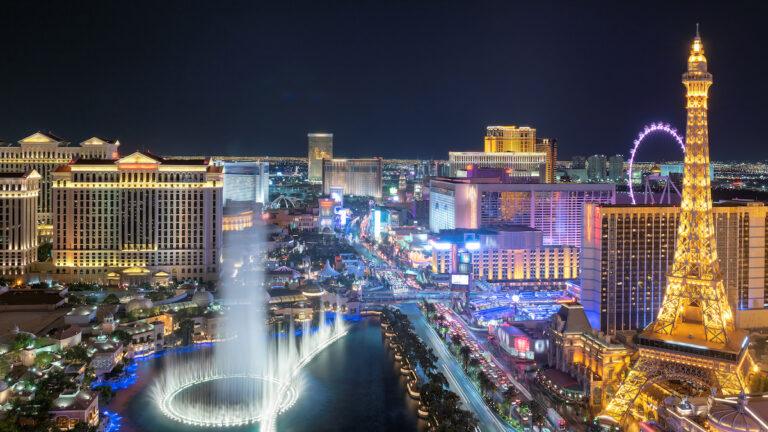Our feature writer Fiona Scott is attended the SuiteWorld 2023 conference in Las Vegas and is learning all about NetSuite, Oracle and meeting entrepreneurs from across the world. This is the third of a series of articles from that conference.
“While in Las Vegas I was lucky enough to get a one-to-one interview with Kate Daniels, who is Director, Associations & Buying Groups at NetSuite and an expert in ESG (Environmental, Social & Governance).
“I wanted Kate to talk to me about how the business landscape is changing when it comes to ESG and how important it really is for all businesses. She was more than happy to oblige.”
For context NetSuite has over 4,600 employees and ESG is something the company has to be aware of, both for its  own compliance yet also, to support its large customer base. Kate believes in being ahead of the curve on both counts, NetSuite’s customers will be well-placed when ESG becomes absolutely vital to business success, particularly when looking for investment to scale up.
own compliance yet also, to support its large customer base. Kate believes in being ahead of the curve on both counts, NetSuite’s customers will be well-placed when ESG becomes absolutely vital to business success, particularly when looking for investment to scale up.
Kate has actually been involved in the world of ESG since 2010, way before it moved more into the business consciousness. She did this after years of working overseas on aid projects.
“Over time I began to realise that the small business & private sector were more effective in bringing about change. I became involved in a project in my next role where we had to show our ESG due diligence, provide and submit data to support that and that was the start of my truly understanding that ESG was and is going to be very important.
“I’ve found that adoption of ESG is either a ‘push’ possibly by investors or a ‘pull’ perhaps by customers or stakeholders and either is a good thing.”
Kate shared the fact that it’s widely expected within the USA that there will be a time when public companies have to make mandatory disclosures around their ESG, specifically green house gas emissions – something that is already happening in other territories including the UK.
“We do expect mandatory disclosures around Scope 1 & 2 and possibly Scope 3 and it’s inevitable when that happens that that impact and that transparency will trickle down to smaller organisations.
“In the UK and Europe there is already far more rigor and legislation around this with far more public reporting.“
Factfile:
Scope 1 – emissions from sources inside an organisation which that organisation owns and controls directly.
Scope 2 – emissions which are more indirect however tends to cover services that an organisation buys in to function such as gas, electricity, steam, cooling for production processes.
Scope 3 – other activities which impact greenhouse gases such as business travel, waste &dealing with waste, product purchasing, transport & end of life of goods.
Kate also pointed to the need over time for companies to be able to demonstrate and measure their ESG credentials – something which is also increasingly important in the UK. Here it’s clear that submitting this data when tendering for contracts in any procurement process will become routine – particularly with large companies or corporations seeking to ensure their own supply chains are as sustainable as possible.
Within NetSuite, Kate pointed to one partner organisation which will allow interested and sustainably conscious customers to measure their impact and align that directly to their finances– CarbonSuite.
Factfile 2:
CarbonSuite which provides carbon accounting data so that there is a direct relationship between a company’s financial and ESG health. Find out more here – https://carbon-suite.com
I asked Kate what trends she expects to see around ESG in 2024. After giving it some thought she listed them:
- An increased focus on environmental reporting.
- A closer link between accessing capital/investment and ESG performance.
- A rise in ‘activist Boards’ who will insist on more ESG activity and will be willing to consider and assess the risks and benefits around it. This includes reputational risk around issues such as ‘greenwashing’.
Interestingly Kate felt that many SMEs in the USA and probably in the UK too, are already involved with ESG even if they don’t realise it. They aren’t measuring their activity and impact – they are simply undertaking more environmentally friendly activities because it makes financial and business sense to do so.
That’s is from Fiona in Las Vegas, for this year….

